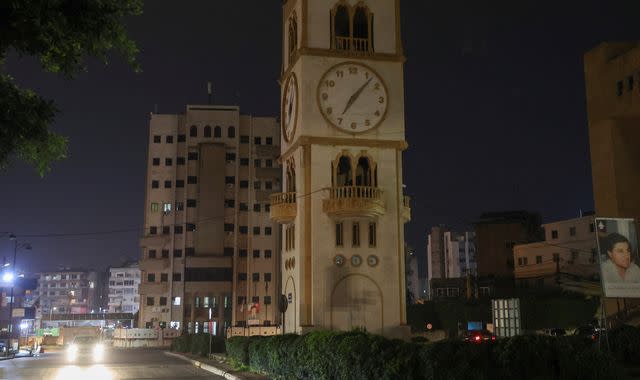Lebanon daylight savings dispute: Country wakes up in two different time zones

People in Lebanon have woken up in two different time zones.
The Lebanese government decided that daylight saving time would begin at the end of Ramadan on 21 April, but this was met with much confusion.
Christian authorities opposed the decision and said the clocks would change on the last Sunday in March, which aligns with most European countries.
A divided country
Caretaker Prime Minister Najib Mikati was met with pushback, signifying a deep division in the country.
In a leaked video to local media, Speaker Nabih Berri and PM Mikati discussed postponing daylight saving time to allow Muslims to break their fasts an hour earlier.
Mr Mikati responded that he had made a similar proposal but went on to say that implementing the change would be difficult as it would cause problems in airline flight schedules, to which Mr Berri said: "What flights?"
After the decision, Middle East Airlines said the departure times of all flights scheduled to leave from Beirut airport between Sunday and 21 April would be advanced by an hour.
The country’s phone networks sent messages to people asking them to change the settings of their clocks to manual instead of automatic so the time would not change at midnight.
The row did not end there, as many private institutions, including TV stations, schools and businesses, announced they would ignore the decision and move to daylight savings on Sunday as previously scheduled.
Haruka Naito, a Japanese non-governmental organisation employee living in Beirut, discovered she had to be in two places simultaneously on Monday morning.
“I had an 8am appointment and a 9am class, which will now happen at the same time,” she said.
Read more on Sky News:
Daylight savings could become permanent in the US if Congress push is successful
Some Muslims objected to the change and pointed out that fasting is supposed to begin at dawn and end at sunset regardless of time zone.
While many others saw the issue as a distraction from the country’s larger economic and political problems.
What exactly is daylight saving time?
Daylight saving time (DST) is when the clocks turn ahead as warmer weather approaches.
When colder weather makes its way back, the clock will also turn back.
DST is a way to make better use of daylight.
The months when the clock is set forward and back differs between the Northern and Southern hemispheres.
This varies from country to country, and some countries choose not to observe daylight savings in their time zones.

 Yahoo News
Yahoo News 
